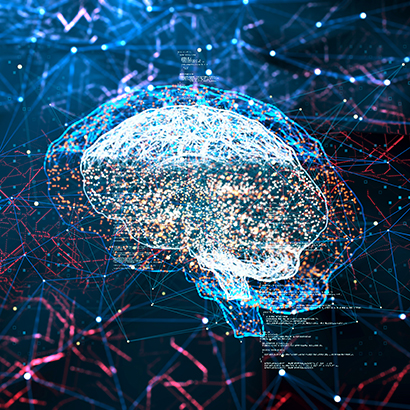
Artificial Intelligence
Artificial intelligence (AI) technologies have experienced unprecedented growth in recent years, and are in the process of revolutionizing various industries worldwide. As these technologies continue to advance, our firm remains at the forefront of the legal landscape, offering comprehensive and cutting-edge counsel to help our clients address the complex legal issues arising from the development and deployment of AI.
We recognize the transformative potential of AI and have established a highly skilled cross-disciplinary team of lawyers that comprise our AI initiative to serve clients. Our team of lawyers, with experience spanning diverse practices, have a passion for technology and its impact on business and the law. We are equipped to advise and support clients currently developing AI applications, seeking to procure and integrate AI technologies into their operations, products, and services, and making capital investments to acquire AI technologies.
We advise on development, procurement, and use of a wide range of AI technologies, including large language models and other generative AI technologies. Our experience extends to areas such as natural language processing, recommendation systems, AI models for predictive analytics, computer vision technologies (including facial recognition), speech recognition technologies, virtual assistants and chatbots, fintech, automation and robotics, healthcare and medical applications, and Internet of Things networks. We counsel clients across various industries and sectors, including financial services, life sciences and healthcare, education, energy and infrastructure, technology, media, telecommunications, transportation, logistics, manufacturing, retail, and government. With our extensive experience in both national and cross-border transactions, we effectively manage routine and complex engagements covering a wide range of technologies.
Mitigating the risks, and leveraging the potential benefits, of rapidly-evolving AI technology will require agility, flexibility, and a wide-range of specialized skill. Our global team of lawyers comprises professionals from diverse practice areas, including:
- Intellectual Property;
- Data Protection, Privacy, and Security;
- Corporate and Mergers and Acquisitions;
- Emerging Growth and Venture Capital;
- Technology Transactions and Sourcing;
- Labor, Employment, and Workplace Safety;
- Commercial Disputes;
- Insurance Recovery and Counseling;
- Ethics and ESG;
- Antitrust, Competition, and Trade Regulation; and
- Policy and Government Regulation.
We have been at the forefront of the efforts for ethical development of AI, establishing the K&L Gates Endowment for Ethics and Computational Technologies. This landmark US$10 million gift to Carnegie Mellon University supports the study of ethical issues related to artificial intelligence. The endowment has facilitated the creation of new faculty chairs, doctoral student presidential fellowships, a biennial CMU K&L Gates conference on Ethics and AI, and an undergraduate scholarship.
By combining our multidisciplinary experience, global reach, and proactive engagement with emerging AI technologies, we are dedicated to advising clients as they navigate the legal complexities surrounding these technologies while embracing the immense opportunities they present.
Other Recognitions
Named by BTI Consulting Group as an Innovation Icon and one of the most innovative law firms in the world, 2025
Thought Leadership
The year 2025 saw significant regulatory activity in the realm of digital assets. The US Congress and financial regulators took steps to create and implement a clear legal framework to facilitate financial transactions using digital assets, and they will continue to do so in 2026.
New York state and New York City continue to advance an extensive and evolving framework of workplace regulations.
Artificial intelligence regulation and litigation are set to take center stage in 2026, as new laws, guidance, and enforcement priorities are introduced at the federal and state levels.
In this article, Dr. Jan Boeing and Arnaud Dobelle outline the key milestones of the new regulatory framework, its interplay with financial sector rules such as DORA and PSD2, and what the upcoming Digital Omnibus proposal means for organisations deploying AI in Europe.

